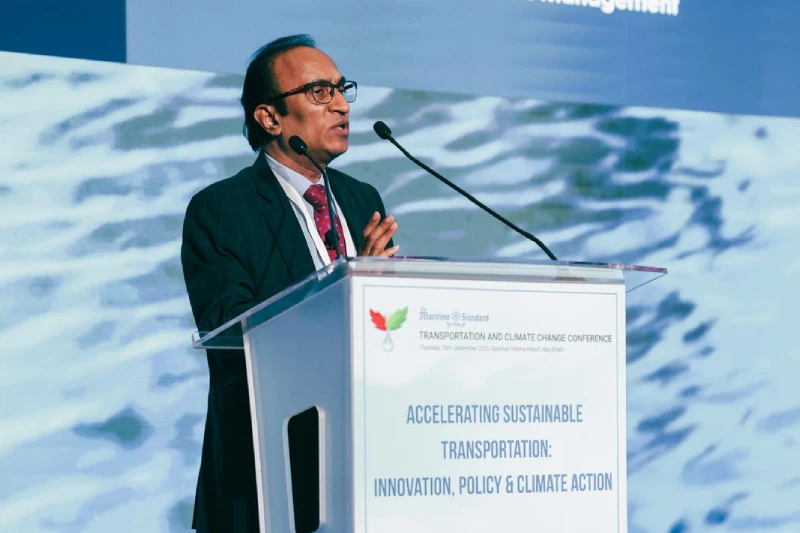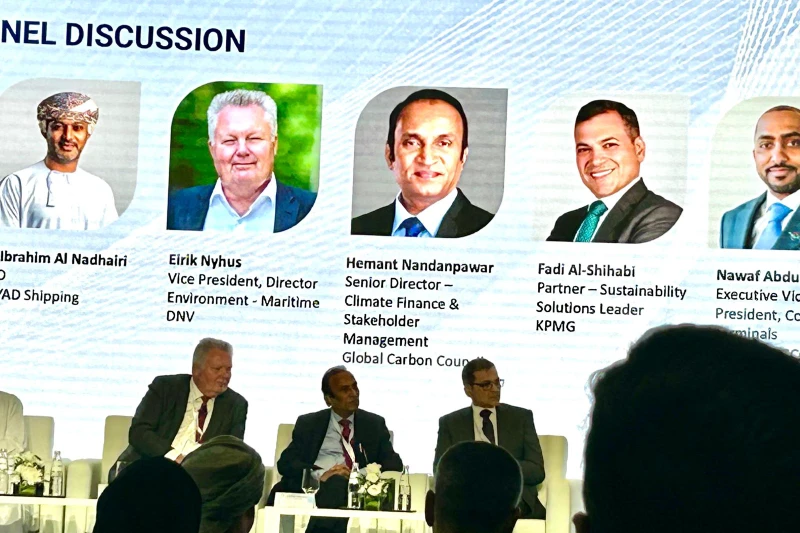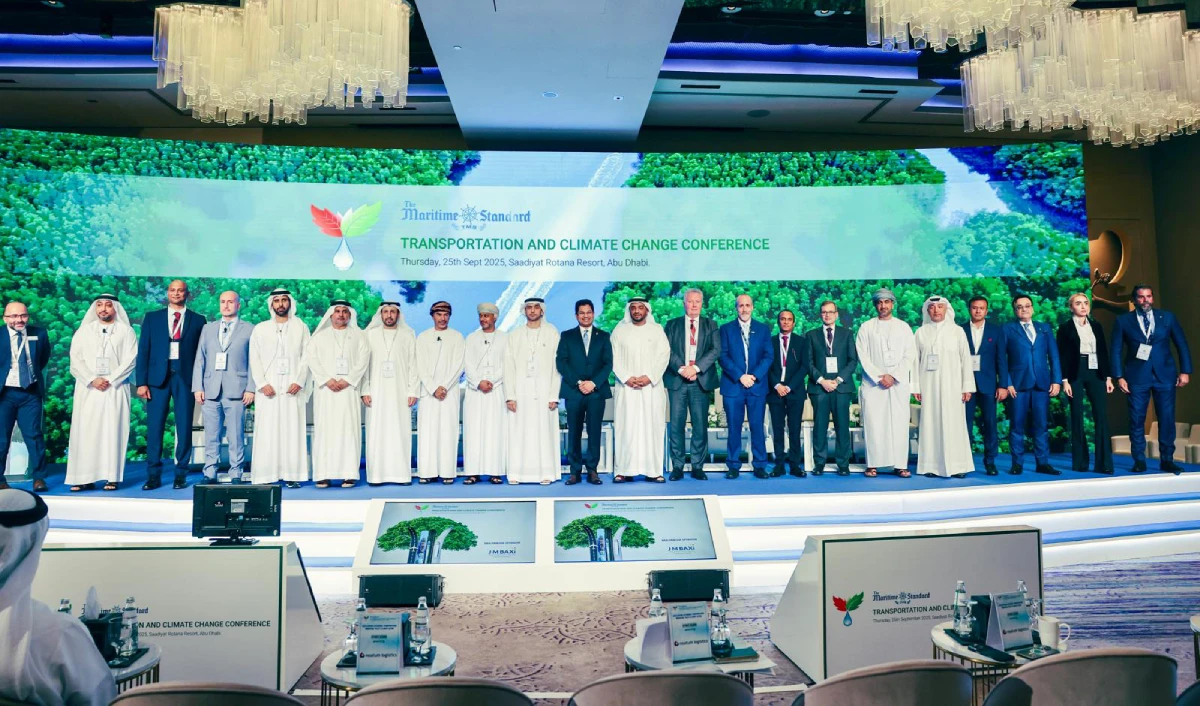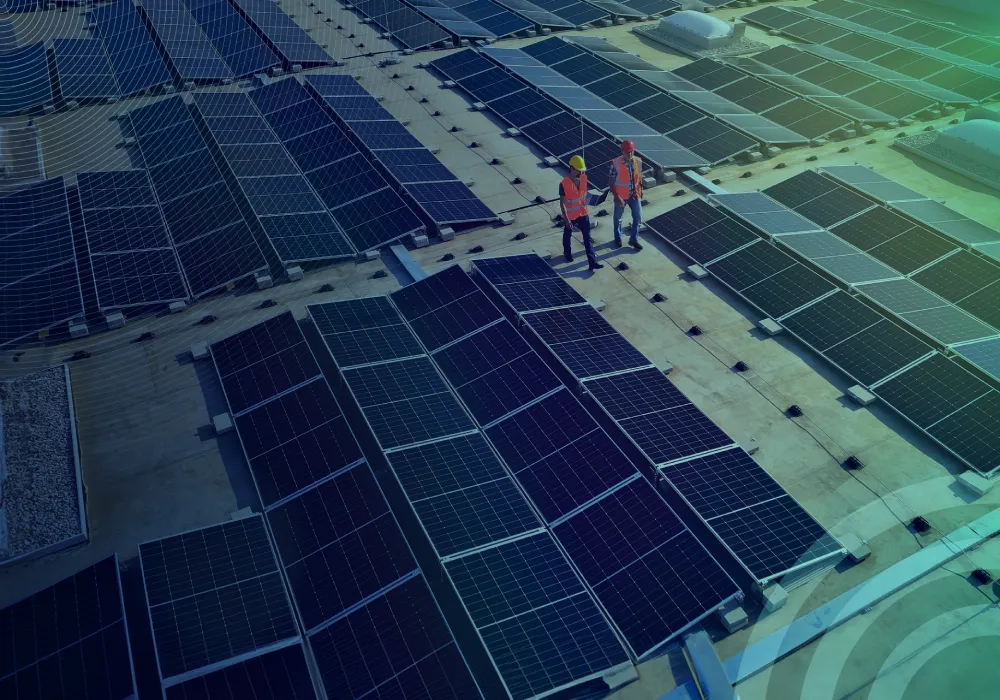


The maritime industry carries more than 80% of world trade and remains the backbone of global logistics. At the same time, it contributes around 3% of total global CO₂ emissions, with the International Maritime Organization (IMO) warning that urgent action is needed to meet its net-zero target by 2050. Achieving Paris Agreement goals requires global emissions to fall by 45% by 2030, adding further urgency.
On 25 September 2025, the Global Carbon Council (GCC) joined global leaders at the Maritime Standard Transportation & Climate Change Conference (TACCC) 2025 in Abu Dhabi. Representing GCC, Hemant Nandanpawar, Senior Director, Climate Finance & Stakeholder Management, spoke in the session: Net-Zero Maritime Transport – Policy, Investment & Global Roadmap, sharing GCC’s vision on how carbon markets can accelerate maritime decarbonization and port sustainability.
The Climate Imperative for Shipping
- The global shipping fleet emitted 614 million tonnes of CO₂ in 2019, rising to around 1,076 MtCO₂ annually today.
- IMO checkpoints require emissions to fall by 20–30% by 2030 and 70–80% by 2040, compared with 2008 levels.
- Since January 2024, shipping has been included in the EU Emissions Trading System (EU ETS), raising compliance costs and incentivizing low-carbon alternatives.
- Major cargo owners such as Maersk and MSC are already demanding greener supply chains, pushing the sector toward innovation.
These trends underline a simple truth: without scalable finance, maritime decarbonization targets will not be met. The sector has yet to fully leverage carbon market opportunities to accelerate its transition.

Carbon Finance – The Missing Link
Hemant emphasized that carbon finance is essential to bridge the cost gap between fossil fuels and low-carbon technologies.
“Carbon markets provide the continuous flow of investment needed for sustained operation of low carbon projects. Every verified emission reduction translates into a carbon credit that can be monetized, ensuring long-term viability and real climate impact.”
Why carbon markets matter for shipping:
- Unlock sustainable revenue streams for ship operators and port authorities.
- Fund upgrades in fuel efficiency technologies, port electrification, and alternative fuels.
- Remove investment barriers created by the split incentives between owners and charterers.
- Strengthen the sector’s ESG profile and improve alignment with customer demands for sustainable logistics.
- Linking maritime projects to both voluntary and compliance carbon markets unlock new pathways for sustainable transformation.
From Case Studies to Market Readiness
Given the various projects and initiatives supporting low-carbon sustainable development in the maritime industry, there is significant potential to access carbon finance for decarbonization. What is needed is consistent financial backing through carbon markets, which can help accelerate low-carbon development. GCC’s Role in High-Integrity Carbon Markets.
GCC is the first international carbon market initiative from the Global South, endorsed by CORSIA (ICAO) and ICROA. GCC ensures:
- Environmental and social safeguards through E+ (Environmental) and S+ (Social) No-Harm labels.
- Robust project validation and verification processes.
- Alignment with Article 6.2 of the Paris Agreement, ensuring credits are interoperable with compliance markets.
With over 1,541 projects across 45+ countries and a forecast of ~2 billion tonnes of emission reductions (2020–2032), GCC is a leading force in ensuring climate projects deliver real, verifiable impact.
Looking Ahead
The discussions at TACCC 2025 reinforced that policy, investment, and carbon markets must converge to achieve net-zero shipping. As Hemant highlighted, maritime decarbonization is not only an environmental necessity but also a financial challenge — and carbon markets provide the mechanism to meet both.
GCC stands ready to support the maritime industry by:
- Facilitating climate finance flows into shipping and port ecosystems.
- Ensuring credits meet the highest international standards.
- Helping countries meet their NDC commitments through carbon market contributions.
- Driving the sector’s transition to a low-carbon, sustainable future.





